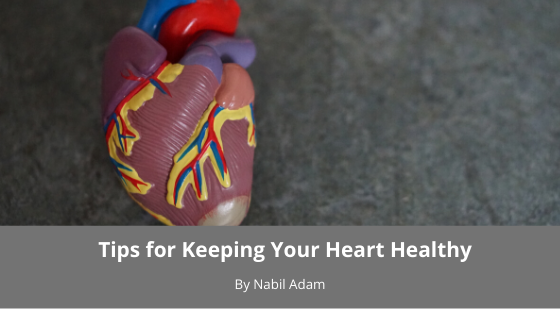February is Heart Health Month, so it’s the perfect time to learn more about taking care of your heart so that you can live life to the fullest. Here are a few tips for keeping your heart happy and healthy.
Eat the Right Kind of Fats
Small amounts of fats are necessary for a healthy diet. Our bodies require fats to provide fatty acids that the body cannot produce itself, but it’s essential to make sure you’re eating the right kinds of fats. To keep your heart healthy, it’s best to limit your overall fat intake, but in particular, trans fats should be avoided. Trans fats clog arteries by increasing bad cholesterol levels (LDL) and decreasing good cholesterol levels (HDL). They are primarily found in processed foods. Where possible, switch from saturated fats to unsaturated fats. Replacing saturated fats with unsaturated fats has been linked to lower cholesterol levels. Meat and full-fat dairy products contain saturated fats, so it’s better to opt for leaner cuts of meat and low-fat options.
Avoid Drinking Your Calories
One of the fastest ways to improve your diet for heart-health is to cut out sugary drinks like fruit juice and soda. These types of drinks are high in calories and don’t do much to satiate hunger, which often leads us to consume additional calories to make us feel full.
Eat a Healthy, Well Balanced Diet
Our mothers often told us to eat our vegetables, and they were right. Eating plenty of vegetables, fruits, nuts, and seeds and fewer processed foods can provide your body with the best fuel. Aim for foods high in fiber and low in salt, saturated fats, and excess sugar.
Be Active
Make regular exercise a priority. Moderate exercise, meaning anything that gets you up and moving enough to break a sweat, for 30 minutes a day, five times a week should be your goal. Cut down on the amount of time you’re just sitting; get up and move around periodically to keep your heart at it’s best.
Get Enough Sleep
Practicing good sleep hygiene and ensuring you get a good night’s rest is essential to maintaining a healthy heart. Lack of sleep can increase your risk of cardiovascular disease regardless of age and other health measures you may be taking. It’s best to get seven to eight hours of sleep a night. If you are struggling to fall asleep or stay asleep, make sure to talk with your physician to determine what changes you can make to improve your sleep.

